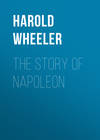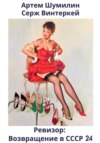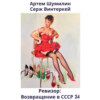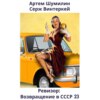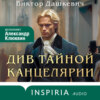Читать книгу: «The Story of Napoleon», страница 18
Napoleon now hoped that Alexander would negotiate with him for peace. The unexpected happened; the Czar showed the most determined resolution. He realised that the entry into Moscow would have smaller effects upon the final results of the campaign than the twin evils of winter and famine which must necessarily follow unless what remained of the Grand Army beat a speedy retreat. As for his own troops, they were constantly reinforced, and had the additional advantage of being hardened to the severe climate and the peculiar nature of the country. Moreover many of the peasants, following the example of the Tyrolese and the Spaniards, waged a savage guerrilla warfare whenever they had an opportunity.
CHAPTER XXX
The March of Humiliation
(1812)
For several weeks the Emperor remained in Moscow anxiously awaiting what he hoped would be a favourable answer to his proposals to Alexander. “I am blamed,” he said, according to Ségur, “for not retreating; but those who censure me do not consider that it requires a month to reorganise the army and evacuate the hospitals; that, if we abandon the wounded, the Cossacks will daily triumph over the sick and the isolated men. A retreat will appear a flight; and Europe will re-echo with the news. What a frightful course of perilous wars will date from my first retrograde step! I knew well that Moscow, as a military position, is worth nothing; but as a political point its preservation is of inestimable value. The world regards me only as a general, forgetting that I am an Emperor. In politics, you must never retrace your steps: if you have committed a fault, you must never show that you are conscious of it; error, steadily adhered to, becomes a virtue in the eyes of posterity.”
The Czar refusing to treat with the enemy at Moscow, Napoleon offered in his desperation to withdraw his opposition to Russian plans regarding Constantinople, hitherto the cause of so much bitterness—all to no purpose. Alexander remained as adamant, and having previously told Sir Robert Wilson, the British commissioner, that he would sooner dig potatoes in Siberia than negotiate while a French soldier remained in Russian territory, neither went back on his word nor regretted it. European affairs were far too unsettled for Napoleon to take up winter quarters. There was no alternative but to order a retreat, to “pocket his pride,” as schoolboys say. So the march which he knew must humiliate him in the sight of both his allies and his enemies was begun with what speed was possible in the circumstances.
Gallant and gay they marched along,
Fair Russia to subdue.
Sneaking and sad they back return,
While brave Cossacks pursue.
Cossacks in clouds, and crows and kites,
Surround them as they go,
And when they fall and sink in death,
Their winding sheet is snow.
Thus run two stanzas of a poem written in the manner of the famous “John Gilpin” and published in London. If it is not particularly good poetry it is true history. At first Napoleon hoped by marching southward to find territory less devastated and poverty-stricken than that through which he had passed. In this he was frustrated by a conflict which took place between Eugène’s corps and the army under Kutusoff. The Viceroy of Italy captured Malojaroslavetz only to find that he had won a barren victory at extreme cost, leaving the Russians posted securely on the hills at the back of the ruined town. The Emperor had wished to push on; the enemy’s position prevented it. Had he known that Kutusoff had previously arranged to retreat if he were attacked, Napoleon would not have hesitated. He weighed the matter in his own mind and discussed it with his Marshals, finally coming to the conclusion that his army must of necessity retire by the road along which it had advanced, or in the expressive terms of Labaume, via “the desert which we ourselves had made.”
Werestchagin’s picture of the retreat conveys some idea of the tragedy. There is the stern and unbending Emperor wearing the crown of fir cones which he wore at this time, and followed by his dejected staff and the empty carriage. We can almost hear the crunch of the snow as it powders under foot, catch the low murmurings of the disillusioned men as they trudge along the uneven roadway, and feel the icy grip and stinging smart of the cruel wind. And yet the artist’s conception, vivid beyond question, cannot bring home to us a tithe of the terrors and misery of that awful march. Horses stumbled and perished, men fell by the wayside and died of hunger and cold, some flung away their arms in sheer despair, others tramped on like machines, cognisant only of the bitter blast which froze their moustaches and whistled through their tattered garments.
According to Labaume, the first snow fell on the 6th November, when the army was tramping towards Smolensk comforted by the thought that in three days they would reach their destination and secure some kind of rude shelter, “when suddenly the atmosphere, which had hitherto been brilliant, was clouded by cold and dense vapours. The sun, enveloped by the thickest mists, disappeared from our sight, and the snow falling in large flakes, in an instant obscured the day, and confounded the earth with the sky. The wind, furiously blowing, howled dreadfully through the forests, and overwhelmed the firs already bent down with the ice; while the country around, as far as the eye could reach, presented unbroken one white and savage appearance.
“The soldiers, vainly struggling with the snow and the wind, that rushed upon them with tempestuous violence, could no longer distinguish the road; and falling into the ditches which bordered it, there found a grave. Others pressed on their journey, though scarcely able to drag themselves along. They were badly mounted, badly clothed, with nothing to eat, nothing to drink, shivering with cold, and groaning with pain. Becoming selfish through despair, they afforded neither succour nor even one glance of pity to those who, exhausted by fatigue and disease, expired around them. On that dreadful day, how many unfortunate beings, perishing by cold and famine, struggled hard with the agonies of death! We heard some of them faintly bidding adieu to their friends and comrades. Others, as they drew their last breath, pronounced the name of their mothers, their wives, their native country, which they were never more to see; the rigour of the frost seized on their benumbed limbs, and penetrated through their whole frame. Stretched on the road, we could distinguish only the heaps of snow that covered them, and which, at almost every step, formed little undulations, like so many graves. At the same time vast flights of ravens, abandoning the plain to take refuge in the neighbouring forests, croaked ominously as they passed over our heads; and troops of dogs, which had followed us from Moscow, and lived solely on our mangled remains, howled around us, as if they would hasten the period when we were to become their prey.
“From that day the army lost its courage and its military attitude. The soldier no longer obeyed his officer; the officer separated himself from his general; the disbanded regiments marched in disorder; searching for food, they spread themselves over the plain, pillaging whatever fell in their way. No sooner had the soldiers separated from the ranks, than they were assailed by a population eager to avenge the horrors of which it had been the victim. The Cossacks came to the succour of the peasants, and drove back to the great road, already filled with the dying and the dead, those of the followers who escaped from the carnage made among them.”
At the little town of Dorogobuï, previously burnt by the Emperor’s orders, practically no comfort could be obtained. “The few houses that remained,” says Labaume, “were occupied exclusively by a small number of generals and staff-officers. The soldiers who yet dared to face the enemy, had little shelter from the rigours of the season, while the others, who had wandered from their proper corps, were repulsed on every side, and found no asylum in any part of the camp. How deplorable was then the situation of these poor wretches! Tormented by hunger, we saw them run after every horse the moment it fell. They devoured it raw, like dogs, and fought among themselves for the mangled limbs. Worn out by want of sleep and long marches, they saw nothing around them but snow; not one spot appeared on which they could sit or lie. Penetrated with the cold, they wandered on every side to find wood, but the snow had caused it entirely to disappear; if perchance they found a little, they knew not where to light it. Did they discover a spot less exposed than others, it afforded them but a momentary shelter, for scarcely had their fire kindled, when the violence of the wind extinguished it, and deprived them of the only consolation which remained in their extreme distress. We saw crowds of them huddled together like beasts at the root of a beech or pine, or under a waggon. Others were employed in tearing huge branches from the trees, or pulling down by main force, and burning the houses at which the officers lodged. Although they were exhausted by fatigue, they stood erect; they wandered like spectres through the livelong night, or stood immovable around some enormous fire.”
Smolensk was reached on the 9th November. During the few days that were spent there the soldiers lost all idea of discipline and pillaged the rations, with the result that while some had plenty others starved. After having made his way to Krasnoi, largely owing to the slow advance of the enemy, Napoleon was joined by Eugène and Davout, and on the 19th the ice-bound Dnieper was crossed. Ney and the rear-guard, unable to come up with the Emperor in time, sustained a heavy loss. But they fought on, and when they rejoined the main army the corps had dwindled to such an extent that it numbered but 900 men.
Marching towards the Beresina river, Napoleon gave orders for bridges to be hastily constructed. Although there were frequent delays owing to breakdowns, many of the troops and some of the artillery passed over in safety. Consequently, when the Russians appeared they found the French on both banks. Victor, Oudinot, and Ney, recognising the extremely serious predicament in which they were placed, fought so determinedly that the remaining troops, excepting only Victor’s rear-guard and some thousands of undesirable camp-followers, were enabled to cross the river. The undertaking was attended by a frightful loss of life, variously estimated at from 20,000 to 25,000 men. At Smorgoni the Emperor, filled with anxiety for the future of his throne and of France, took leave of his Marshals after telling them that he would raise another powerful army, entered his travelling-carriage and was whirled away to Paris as fast as the horses could draw the lumbering vehicle. Twice he narrowly escaped assassination, and the knowledge of a conspiracy engineered by Malet to shatter the Napoleonic dynasty, as well as of continued disasters in the Peninsula, did not tend to sooth his overwrought nerves. The mighty edifice he had erected seemed to be crumbling away at the very moment when he had hoped to complete it.
The remnants of the Grand Army dragged their flagging footsteps to Vilna, commanded, if that word may properly be used, by Murat. Disaster still dogged them, their strength grew feebler and feebler. Only 100,000 troops, chiefly consisting of those under Schwarzenberg and Macdonald, returned to their native land. Doubtless the survivors thought sadly of the fate of half a million comrades, some of whom still lived as prisoners or wanderers, while the majority lay stiff and gaunt on the plains and in the forests of victorious Russia, their winding-sheet the snow. At least 150,000 of the enemy kept them company in death. No priest gave them holy sepulture, but the crows cawed a funeral requiem.
CHAPTER XXXI
The Beginning of the End—The Leipzig Campaign
(1813)
“The Colossus,” said the Abbé Juda to Wellesley, “has feet of clay. Attack it with vigour and resolution, and it will fall to pieces more readily than you expect.”
In the early days of 1813 the Iron Duke’s opportunity for following the advice of the far-seeing Abbé was not yet come. Prussia, little down-trodden and despised Prussia, with a population of scarcely more than four and a half millions, was to pave the way for the liberation of Europe. When Napoleon had humbled the kingdom by the creation of the Confederation of the Rhine and fixed the Prussian army at the absurdly low number of 40,000 men—a mere handful compared with his own immense armament—he expected no further trouble from King Frederick William III. The Emperor understood the character of the monarch well enough, and he knew sufficient of Stein’s patriotic ideals to insist on his dismissal from office. But such a spirit as Stein’s was not to be easily curbed. Napoleon, instead of pouring water on the former Minister’s zeal had simply added fuel to the flames. Stein, free from the exacting cares of State, proved to be more dangerous than before. He and Sir Robert Wilson had fortified the failing courage of Alexander when Napoleon awaited the Czar’s peace overtures in the Kremlin; he and others now came to the aid of their own king, and like Aaron and Hur who held up the feeble arms of Moses at the battle of Rephidim, gave strength to the wavering faith of Frederick William III. There is much truth in Treitschke’s statement that “Every step which has been taken in this (the 19th) century towards German unity, has been the realisation of some thought of Stein’s.”
The conditions of life in Prussia had improved immensely since Jena. Before that decisive defeat it was a land of castes, just as India is to-day, and the agricultural classes serfs, as were the peasants of France before the Revolution. Civilised slavery was now abolished; there was a revival of learning; most important of all, for practical purposes at the moment, there was a revival of patriotism.
Public opinion in Prussia was against Napoleon, but moral force alone could not prove his undoing. Fortunately the country possessed a military genius in Scharnhorst, who had caused thousands of men to pass through the army while it still retained the normal strength allowed by the Emperor of the French. Recruits took the place of the efficient, and after necessary training, made way for others. This is the secret of the 150,000 trained men whom the King of Prussia had at his call.
An incident which did much to bring on the crisis which was felt to be imminent on all sides was the desertion to the Russians of the Prussian corps under General York. In the retreat from Russia, York was in command of Macdonald’s rear-guard. The Marshal, leading the centre, duly arrived at Tilsit, opened communications with Königsberg, and waited for York. At first Macdonald thought that the Prussian General had met with misfortune on the road, then rumour whispered of treachery, and finally an officer who had been testing the ice on the river informed him that he had seen the Prussians rapidly re-cross the Niemen. “Good Heavens!” Macdonald exclaimed as the full force of the blow became apparent to him, “we are betrayed—perhaps given up; but we will sell our lives dearly.” His feeble forces, however, made their way through the dense forest of Bömwald, and after a sharp skirmish at Labiau, reached Königsberg. From thence they marched to Elbing, crossed the frozen Vistula, and were soon within sight of the fortress of Danzig. Here Macdonald handed over his command to General Rapp, the Governor, and shortly afterwards was recalled to Paris to assist in the organisation of new army corps. During an interview the Emperor frankly admitted that he had been misled as to Prussia’s policy, and that the campaign they were about to undertake would be “the last.” “He added,” says Macdonald, “that he put implicit trust in his father-in-law, the Emperor of Austria. ‘Beware!’ I answered. ‘Do not trust the clever policy of that Cabinet.’” There was considerable justification for this remark; the Austrian contingents had played but a half-hearted part in the Russian campaign.
What York had done was to take matters into his own hands and come to terms with the Russians because he feared for the safety of his troops. Diebitsch, the commander who suggested a conference, really played a very good game of bluff. He had told York that he was intercepted, whereas the Prussian forces were over seven times as strong as his own! However, they arranged that the district around Memel and Tilsit should be neutral territory until the Prussian monarch’s decision should be received. “Strictly considered,” says Dr J. Holland Rose, “this Convention was a grave breach of international law and an act of treachery towards Napoleon. The King at first viewed it in that light; but to all his subjects it seemed a noble and patriotic action. To continue the war with Russia for the benefit of Napoleon would have been an act of political suicide.”
By a treaty ably engineered by the sleepless Stein and signed on the 27th February 1813, Prussia finally decided to throw down the gauntlet and join Russia against Napoleon. In the following June Prussia promised to raise 80,000 men for a subsidy of £700,000 from Great Britain, Russia supplying double the number of troops for £1,400,000. Even Sweden deserted the Emperor in March by agreeing to bring 30,000 men into the field in return for a subsidy of £1,000,000 per annum from England and the cession of Guadaloupe. Austria, while still pretending to be friendly to the French cause, came to a secret understanding with Russia in January 1813 for the cessation of hostilities. Afterwards overtures for peace were made to Napoleon by a Congress held at Prague in July.5 “Napoleon,” says Mignet, “would not consent to diminished grandeur; Europe would not consent to remain subject to him.”
When Napoleon heard of the defection of Prussia he muttered, “It is better to have a declared enemy than a doubtful ally”; as he left St Cloud at dawn on the 15th April for the headquarters of the army after having appointed the Empress regent during his absence, he said, according to Caulaincourt, “I envy the lot of the meanest peasant of my Empire. At my age he has discharged his debt to his country, and he may remain at home, enjoying the society of his wife and children; while I—I must fly to the camp and engage in the strife of war. Such is the mandate of my inexplicable Destiny.”
While the French were growing tired of the ceaseless struggle, they had nobly supported the Emperor in his appeal for soldiers to fill the gaps in the ranks caused by the campaign of 1812. No fewer than 350,000 conscripts were voted, cities gave liberally and equipped volunteer regiments, the people still seemed to be fascinated by his genius and afraid of incurring his displeasure. But the army for the first Saxon campaign was unlike the old army. There were too many youths in it, fellows brave enough no doubt but unused to the rough life of field and camp. Fortunately for the Emperor the best of his officers had survived, and although Murat called his brother-in-law a madman, they still believed in his sanity and ability. Had the King of Naples termed Napoleon imprudent there would have been more justification in his remark, for his constant warfare tended to become an obsession. “I grew up in the field,” he told Metternich, “and a man like me troubles himself little about the lives of a million of men.” This was not the Napoleon of the Italian campaign, but a gambler, a man who put his trust in material forces rather than in carefully-chosen strategic positions, and swift, decisive strokes. De Fezensac had noted Napoleon’s lack of care in the Polish campaign. “The order,” he says, “must be executed without waiting for the means.... This habit of attempting everything with the most feeble instruments, this wish to overlook impossibilities, this unbounded assurance of success, which at first helped to win us advantages, in the end became our destruction.”
At the opening of the campaign Russia and Prussia bore all the fighting for the allies, their forces numbering 133,000. Kutusoff, until his death in the early stages of the war, took command of the combined forces; the right wing being under Wittgenstein, who succeeded him; the left wing under Blücher. In point of numbers Napoleon was far ahead, having some 200,000 troops at his disposal, divided into the Army of the Elbe of 60,000, the Army of the Main of about 105,000, and 40,000 Italians and Bavarians. The Emperor’s first step was to occupy Leipzig, not a difficult movement seeing that he had 145,000 men, while the Allies had only 80,000 to bring to bear on any one point. The headquarters of the latter were at Dresden. On the 3rd May 1813, two days after an action at Weissenfels in which Marshal Bessières was killed by a cannon-ball, the battle of Gross-Görschen (sometimes called Lützen) was fought, the Russian and Prussian soldiers selling their lives dearly for the cause they had so much at heart, indeed they lost considerably less in killed and wounded than the enemy. There was a disposition on the part of some of the French conscripts to run away at the first taste of real warfare, but when Napoleon approached and said, “Young men, I reckoned on you to save the Empire, and you fly!” they took heart and fought as valiantly as the veterans. Both the Emperor of Russia and the King of Prussia watched from an adjacent hill the great sea of men contest the cluster of villages around which the battle centred. It was not until Napoleon brought up reinforcements that the fate of the day was decided in his favour, no fewer than four of the five villages having fallen into the hands of the Allies, who now retreated towards Dresden. Even then the fiery old Blücher—he was over seventy—could not resist a cavalry charge within an hour of midnight.
Sir Charles Stewart, the British Minister at the headquarters of Frederick William III., thus records this desperately contested battle, the prelude to what is usually called the first Saxon Campaign:
“A very brisk cannonade commenced the action on both sides. The villages of Gross and Klein Görschen were soon set on fire, and taken by the Allied troops, but not without loss. Heavy bodies of cavalry were sent to the left to prevent the enemy from turning that flank; and the Allied troops were frequently drawn within the enemy’s fire without producing the effect their exertions merited. The villages alluded to, when taken, afforded no solid advantages, as the enemy were equally strongly posted, barricaded, and entrenched in adjoining ones.
“The cavalry of the Allies6 (more especially the Prussians) advanced often so rapidly upon the French infantry that they could not get back to the strong villages from whence they had debouched, and they consequently received the charges of the enemy in squares. Great slaughter ensued, and the Prussian cavalry inspired their allies the Russians with the greatest confidence and admiration. The action continued in a struggle for the different villages of Lützen, the Görschens, and Geras, which were taken and retaken several times, the Görschens remaining, however, always in the hands of the Allies. Towards the close of the day, however, a very strong column arrived from Leipzig, belonging to Beauharnais’ corps, which threatened the right of the Allies, and prevented their making further progress. They remained on the ground they had so gallantly fought over, masters of the field of battle. The Emperor of Russia, the King of Prussia, the Princes of Prussia were present, animating the troops by the greatest display of personal exertions and bravery.
“The result of the battle was the capture of sixteen pieces of cannon, some standards, and some hundreds of prisoners. The battle lasted from ten o’clock in the morning till dark. It is very difficult to obtain any correct information as to the loss of the enemy. That of the Allies may be estimated at about 12,000 Prussians and 3,000 Russians hors de combat. The main efforts in the action fell upon General Blücher’s corps, who was himself wounded, as well as the chief of the Prussian État Major, General Scharnhorst,7 the latter severely. Many most distinguished officers were killed and wounded, among the former the Prince of Hesse-Homburg.”
As a sequel to this battle Dresden was restored to the King of Saxony, now only too glad to come to terms with his former friend after having abandoned him. Napoleon soon followed up the advantage he had gained by winning a second battle at Bautzen on the 20th and 21st May. The enemy was forced to retire into Silesia, but they did so in good order notwithstanding the severe fighting which continued, during which Duroc was mortally wounded. “Farewell, my friend,” the Emperor said to the dying general, “we shall see each other again, it may be ere long!” He was so affected by the distressing scene that he refused to transact any further military business that day. “Everything to-morrow,” was the only answer he would vouchsafe to his astonished aides-de-camp.
An armistice was now arranged, Austria making further overtures for peace which it would have been wise for the Emperor to have accepted, especially as they were by no means so preposterous as he made them out to be. Briefly stated, the principal conditions were that the boundaries of the Empire should be fixed at the Rhine, that Germany should be evacuated and the title of Protector of the Confederation of the Rhine given up, the handing over of Hamburg, Lübeck, and Bremen, and the partition of unfortunate Poland once again between Austria, Prussia, and Russia. Napoleon was scarcely civil to Metternich, the Austrian Minister who was charged with the delicate mission. “But I know what you desire in secret,” he said in his abrupt manner. “You Austrians desire to get Italy entirely to yourselves; your friends the Russians desire Poland; the Prussians are set on Saxony; the English on Belgium and Holland. And if I yield to-day, you will to-morrow demand of me those the objects of your most ardent desires. But before you get them, prepare to raise millions of men, to shed the blood of many generations, and to come to treat at the foot of Montmartre. Oh, Metternich, how much has England given you to propose such terms to me?”
“You persist then,” the Emperor concluded after a fierce war of words, “in bidding me defiance; you will give the law to me? Be it so! Let it be war, and the field of combat Vienna.”
As a result of the armistice Austria threw in her lot with Russia, Prussia, and Sweden, whose combined forces consequently outnumbered those marching with the French colours. Now began a long series of engagements in quick succession, the most important being the battle of Dresden between the troops under Napoleon and Schwarzenberg on the 27th August, which ended in the retreat of the Allies, and the defeat of the French at Kulm, where 10,000 prisoners were taken. After Dresden the Emperor ordered the pursuit of the dejected Russo-Prussian columns, but it was not carried out with sufficient energy to achieve decisive results.
Napoleon suddenly decided to return to Dresden, for what reason is unknown; some authorities aver that he was taken ill. It seemed as though the French had lost their prowess; Macdonald met with disaster, Ney failed at Dennewitz when victory seemed in his grasp, Reynier was forced to retreat, Bertrand to abandon Wartenburg. Everything was going from bad to worse, but it was not Napoleon himself who met these rebuffs it must be remembered. The Allies were still afraid of him.
The Emperor now concentrated some 190,000 troops on Leipzig, the enemy having at their command a possible 300,000, all of whom, however, were not available at the beginning of the now famous “Battle of the Nations.” This lasted from the 16th October till the 19th, and ended in the defeat of Napoleon. During the four days no fewer than 120,000 men were killed or wounded, eloquent proof of the awful nature of the desperate conflict. Deserted by the Saxons, Würtembergers and Bavarians, Napoleon fought his way to the Rhine, crossed the river, and leaving his army, now reduced to about 70,000 men, arrived in Paris on the 9th November. “The close of the campaign,” said Mignet, “was as disastrous as that of the preceding one. France was threatened in its own limits, as it had been in 1799; but the enthusiasm of independence no longer existed, and the man who deprived it of its rights found it, at this great crisis, incapable of sustaining him or defending itself. The servitude of nations is, sooner or later, ever avenged.” The concluding sentence sums up the whole philosophy of history.

